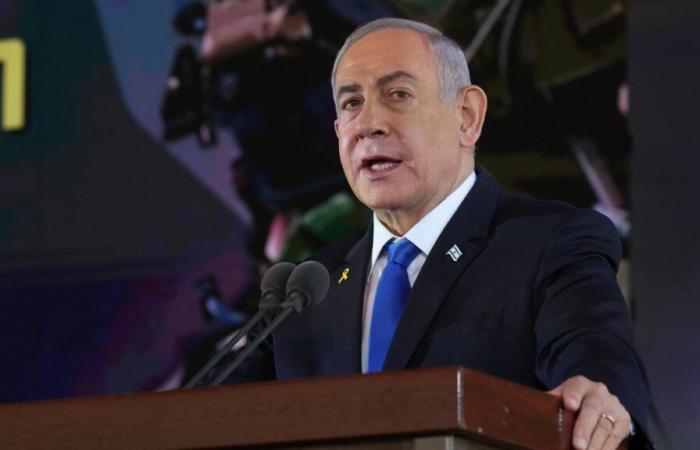
GIL COHEN-MAGEN / AFP
Israeli Prime Minister Benjamin Netanyahu, here on October 27, 2024.
INTERNATIONAL – Small arrangement between friends. Israeli Prime Minister Benjamin Netanyahu reportedly agreed to sign the ceasefire with Hezbollah, marking the temporary cessation of hostilities in Lebanon, in exchange for a favor: that Paris does not apply the arrest warrant issued by the ICC a week earlier. This revelation was made by two of the largest Israeli daily newspapers this Wednesday, November 27, Haaretz et Maariv.
Last Thursday, the International Criminal Court (ICC) issued an arrest warrant for war crimes and crimes against humanity against Benjamin Netanyahu and his former Defense Minister Yoav Gallant, due to operations carried out in the Strip. Gaza. This announcement came as the United States and France were working behind the scenes to sign the ceasefire agreement in Lebanon.
Once the ICC decision was made public, France said it wanted to apply its obligations under international law, without however specifying whether it would arrest Benjamin Netanyahu in the event he set foot on French soil. Unlike the United Kingdom or Italy for example, which have been much clearer in their intentions.
The French position angered Benjamin Netanyahu, who threatened to slam the door on negotiations, reports Maariv. Problem is, Lebanon absolutely wanted the presence of France, a close ally, in these discussions. Benjamin Netanyahu would then have posed his “requirement”explain Haaretz, and called on French diplomacy to invoke “immunity” from which he would benefit according to the ICC Statutes.
An “immunity” that is debated
Signed in 1998, the treaty establishing the ICC addresses the question of the immunity of leaders of countries not recognizing the court in its article 98. The latter in fact introduces an exception concerning the arrest and surrender of officials of non-States. -members of the ICC, as is the case of Israel, and opens the way to interpretations.
In order not to derail the negotiations, Paris would therefore have agreed to let go of the application of the arrest warrant. This is why the Minister of Foreign Affairs Jean-Noël Barrot spoke this Wednesday of possible “ immunity issues » pour « certain leaders » targeted by ICC arrest warrants. Later, the Quai d'Orsay clarified that the Israeli Prime Minister benefited from this “immunity” Who “ will have to be taken into consideration if the ICC were to ask us for their arrest and surrender ».
Except that this new French interpretation has aroused a wave of disapproval on the left but also from associations and NGOs. Amnesty International insists, for example, on “ the fundamental obligations of France as a State party to the ICC”, while for the France director of Human Rights Watch (HRW), Bénédicte Jeannerod, the French position is “ deeply shocking”.
Other sticking points
However, the question of the ICC arrest warrant and its application was not the only sticking point in these negotiations. According to the American site Axios, the authorization for Israel to respond with force in the event of violation of the agreement by Hezbollah was debated. On advice from France, Lebanon judged this “freedom of action” was unacceptable, but it was ultimately adopted.
Still according to Axios, this change of footing would take place after a G20 meeting between Emmanuel Macron and American Secretary of State Antony Blinken in Rio on November 19. Aware that this position could end the negotiations, the French head of state made a concession. Questioned by Axios, a French source nevertheless denied this.
But the United States also put pressure on Israel, says Haaretz in another article. According to the opposition newspaper hated by the government, which cites the office of Prime Minister Benjamin Netanyahu, the Biden administration would have threatened to put an arms embargo if Israel did not sign this agreement.
Also see on HuffPost :
Reading this content may result in cookies being placed by the third party operator who hosts it. Taking into account the choices you have expressed regarding the deposit of cookies, we have blocked the display of this content. If you wish to access it, you must accept the “Third Party Content” category of cookies by clicking on the button below.
Play Video





